Keywords: Rodica Binder; German press; presa germană; Romania; România; Die Welt; Bulgaria; Uniunea Europeană; European Union; terra incognita; Fundaţia Humboldt; Humboldt Foundation; simpozion; symposium; Andrei Pleşu; Europa de Răsărit; Eastern Europe; Occident;
The author (a Romanian journalist working for Deutsche Welle) points out some errors of perception and information of the West, that still persist even after two decades after the fall of Communism, regarding the countries beyond the Iron Curtain and mostly Romania in this particular essay. Binder demonstrates the injustice of this perception, mentioning several former and contemporary Romanian cultural personalities who can offer the Western reader remarkable revelations. For instance Cioran, also the “protagonist” of Nicolaus Sombart’s monography. Paradoxically, Sombart himself while admitting that Romania is no longer a terra incognita, still regards Romanian culture in general as provincial, peripheral. Or Mircea Cărtărescu, Dan Lungu and other representatives or features that ought to be known in order to understand and fully appreciate the complex value of a culture.
More...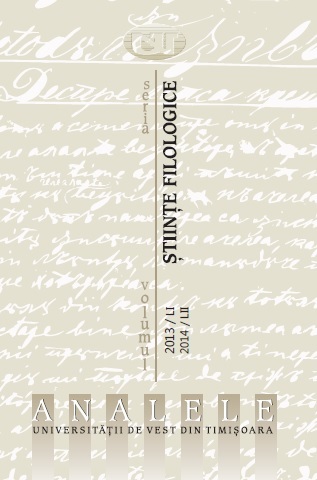
Keywords: poetry of the “Aktionsgruppe Banat”; “slave language”; critical poetry; subverting censorship
The prestigious literary scholar Hans Mayer introduced the term “slave language” to characterize the writings of Bertolt Brecht since 1933. From him Karl Heinz Wüst adopted the term in 1989, to denote the typical language used in social systems that disregard the freedom of words. The present paper analyzes the poetry of the “Aktionsgruppe Banat” from its foundation in April 1972 up to its dissolution by the Romanian Security Force in the autumn of 1975, in order to detect the forms of “slave language” that can subvert censorship. These are the macro-structures of allegory and parable, the micro-structures of metaphor, communication and irony. Moreover, proverbs, counting rhymes, literary and historical-political allusions, puns and language games can be added on to the critical poetry.
More...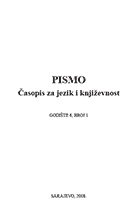
Keywords: Freundschaft; Romantik; Bettina von Arnim; Christa Wolf
Die zentrale Frage konzentriert sich um die Frauenfreundschaft, ganz spezifisch darum, in welchem Ausmaß die Frauenfreundschaft für die literarische Produktion einzelner Autorinnen in der Zeit der Romantik wichtig, vielleicht sogar maßgebend war. Die imaginierte Welt der romantischen Frauenfreundschaft, die die Autorin am Beispiel von Bettine von Arnims Günderrode zeigt, wird zur offenen, zur ganzen Welt; sie ist der Zugang zur Utopie, und die Freundschaft stellt nicht die Eroberung der wirklichen Welt dar, sondern die Erschaffung einer exklusiven Welt, die alle Möglichkeiten, auch die verbotenen, impliziert. Die Kontinuität lässt sich bis zur Freundschaftskonzeption im literarischen Werk Christa Wolfs verfolgen.
More...Summary of Vol. 29/2006, No. 2, contains as well the adresses of the authors and other useful information
More...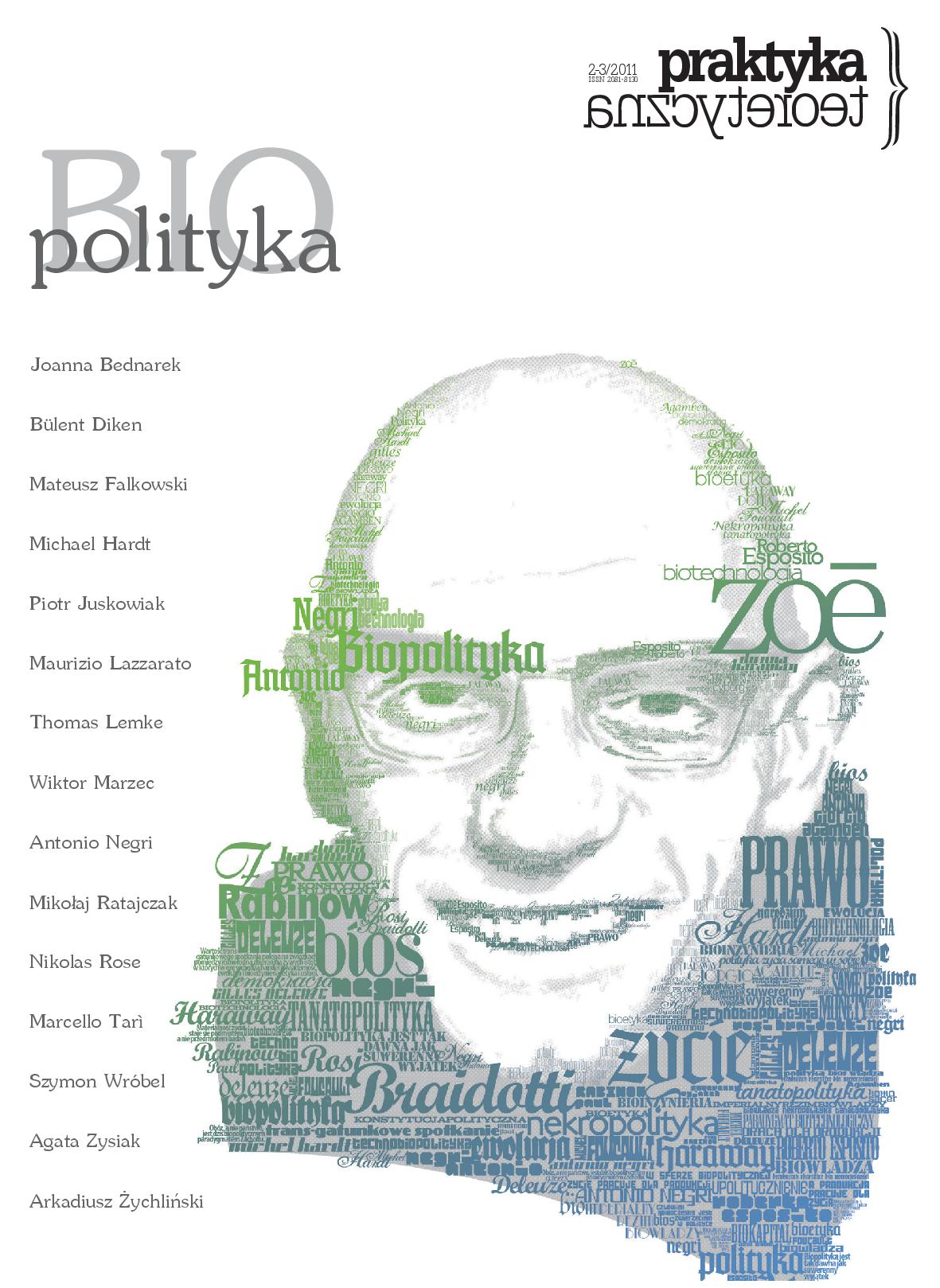
Keywords: biopolitics; life; analysis of biopolitics; theories of the state; racism; national Socialism
The text is a detailed analysis of the genealogy of the concept of biopolitics from its early use by race theorists and state-of the body, the concepts of ecological and technocentryczne the thought of Michel Foucault and contemporary projects that relate to the work of French philosopher. By focusing not only on the scratched historical context stretching the term "biopolitics" but also interested in how the discussion in the theories recognize the relationship between life and politics, scientific truth and the norm, etc. The last chapter re also outlined the contours of analytics of biopolitics and hown the importance of this concept for today problems in the field of sociology and philosophy & politics.
More...
Keywords: Deleuze; Merleau-Ponty; Phenomenology; Body; World
To compare Merleau-Ponty’s and Deleuze’s phenomenal bodies, I first examine how for Merleau-Ponty phenomena appear on the basis of three levels of integration: 1) between the parts of the world, 2) between the parts of the body, and 3) between the body and its world. I contest that Deleuze’s attacks on phenomenology can be seen as constructive critiques rather than as being expressions of an anti-phenomenological position. By building from Deleuze’s definition of the phenomenon and from his more phenomenologically relevant writings, we find that phenomena for him are given to the body under exactly the opposite conditions as for Merleau-Ponty, namely that 1) the world’s differences 2) appear to a disordered body that 3) comes into shocking affective contact with its surroundings. I argue that a Deleuzian theory of bodily-given phenomena is better suited than Merleau-Ponty’s model in the task of accounting for the intensity of phenomenal appearings.
More...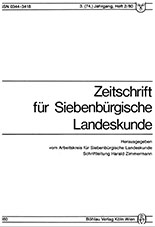
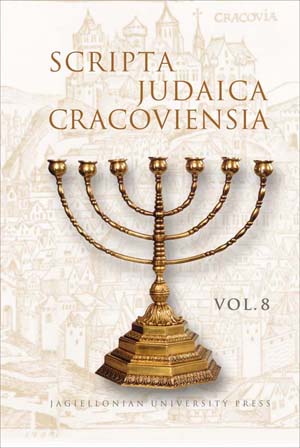
Keywords: Free City of Kraków; Kingdom of Poland; religious structure; Jewish communities
The year 1815 saw the emergence of a new State on the map of Europe – the Free City of Kraków, which, because of its affiliation to the small group of European Republics, was also referred to as the Republic of Kraków. The Free City of Kraków stretched along the left bank of the River Vistula, bordering to the west with the Kingdom of Prussia, to the north and east with the Kingdom of Poland and to the south with the Austrian Empire. Its total surface area was 1150 km², which – apart from Kraków which became the capital – also contained three small private towns, Chrzanów, Nowa Góra and Trzebinia, as well as 244 villages
More...Keywords: Reflection; Universe; Substance; Compossibility; Uniqueness.
The present article fathoms the difficulties as well as the beauty behind Leibnizian perspectivism, depicting the somewhat odd, yet highly elegant and influential relation between particular substances and the universal picture in which they are bound to fit. Moreover, it discusses several fundamental objections relayed via Strawson’s interpretational perspective, as well as their suspected flaws.
More...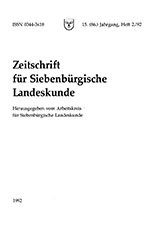

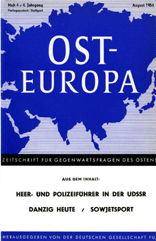
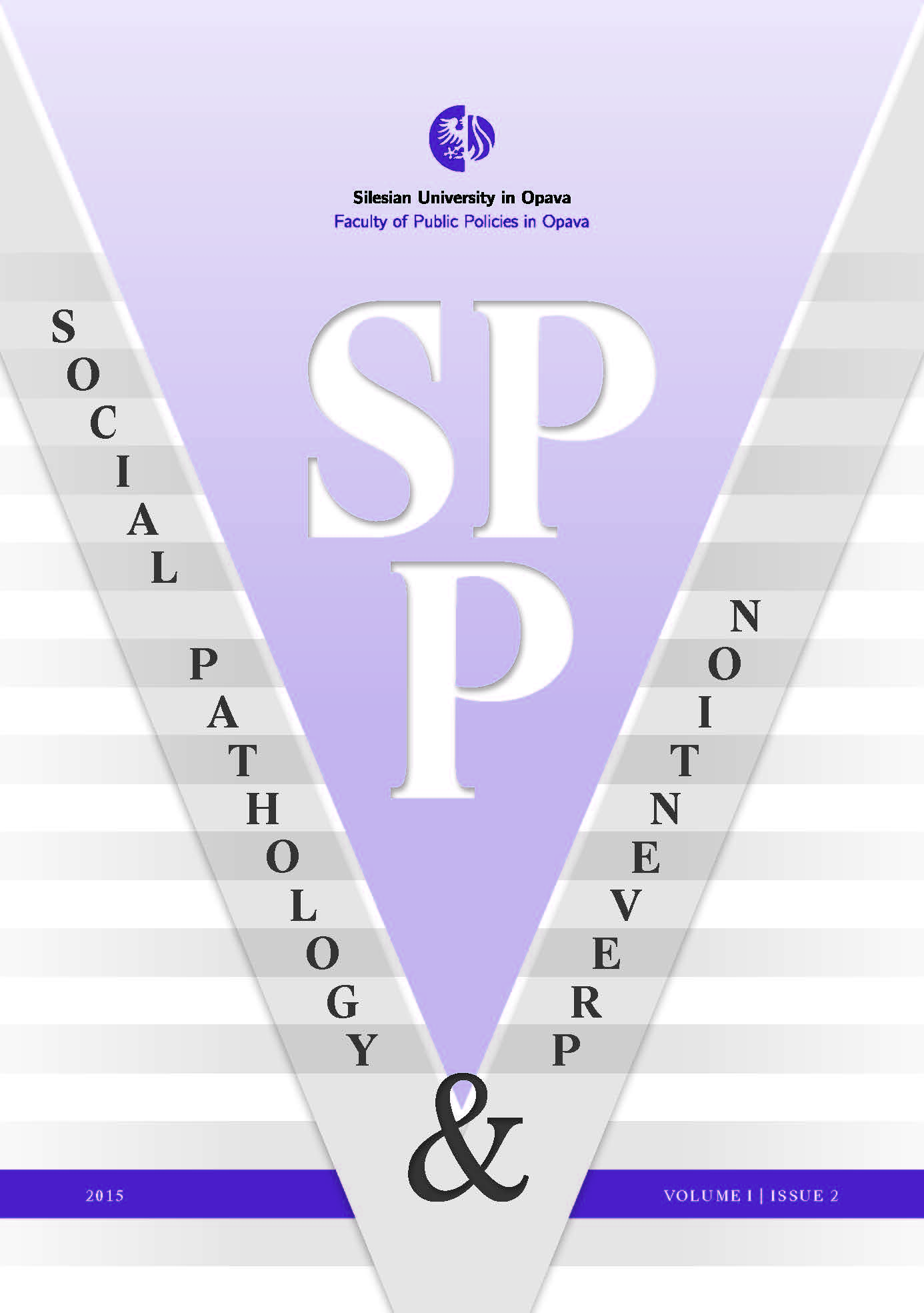
Keywords: procreation; parenthood; mental handicap; sexuality; morality; special primary school; Home of Social Services
In this paper, we present two researches which focused on the attitudinal and behavioural attributes of the sexuality of mentally handicapped persons and on its socio-cultural and ethical contexts. It presents a comparative research probe into the moral preferences regarding parenthood and procreation of the mentally handicapped as perceived by professional staff of the Social Service Centres (SSCs) and by the teachers of special primary schools in Slovakia. We, specifically focus on the description of particular research findings which involve moral preferences regarding parenthood and procreation of the mentally handicapped as perceived by the professional SSC staff and by teachers of special primary schools which were obtained using a part of the standardized ASQ – Attitudes to Sexuality Questionnaire (Individuals With An Intellectual Disability) from authors Cuskelly and Gilmore (2007). The research findings show that the moral preferences regarding parenthood and procreation of the mentally handicapped are mostly negative, even if compared to the professional SSC staff, the teachers of special schools prefer the right to procreation and parenthood more.
More...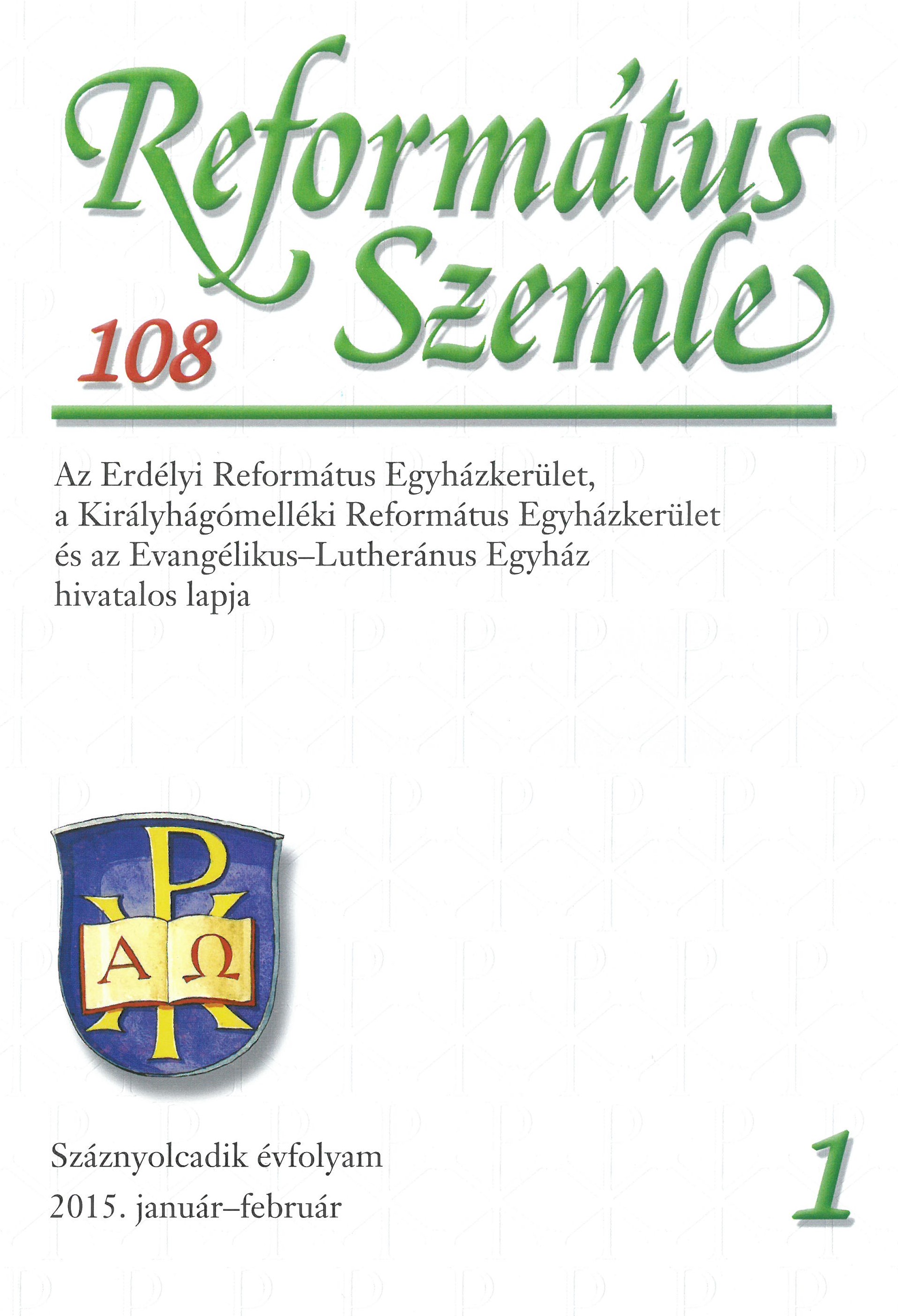
Keywords: Love; God’s Law; Neighbour; Triplex Usus Legis
In this short paper we propose to present the teaching of the Bible concerning the love of our neighbours. Starting with Romans 13:10, where apostle Paul asserts that love is the fulfilling of the law, we analyse those biblical passages in which the traces of this topic can be found. We aim to show that both the Old and the New Testament highlights the importance of the love towards God and our neighbours. At the end of our survey we discuss this topic in the light of the threefold use of God’s Law.
More...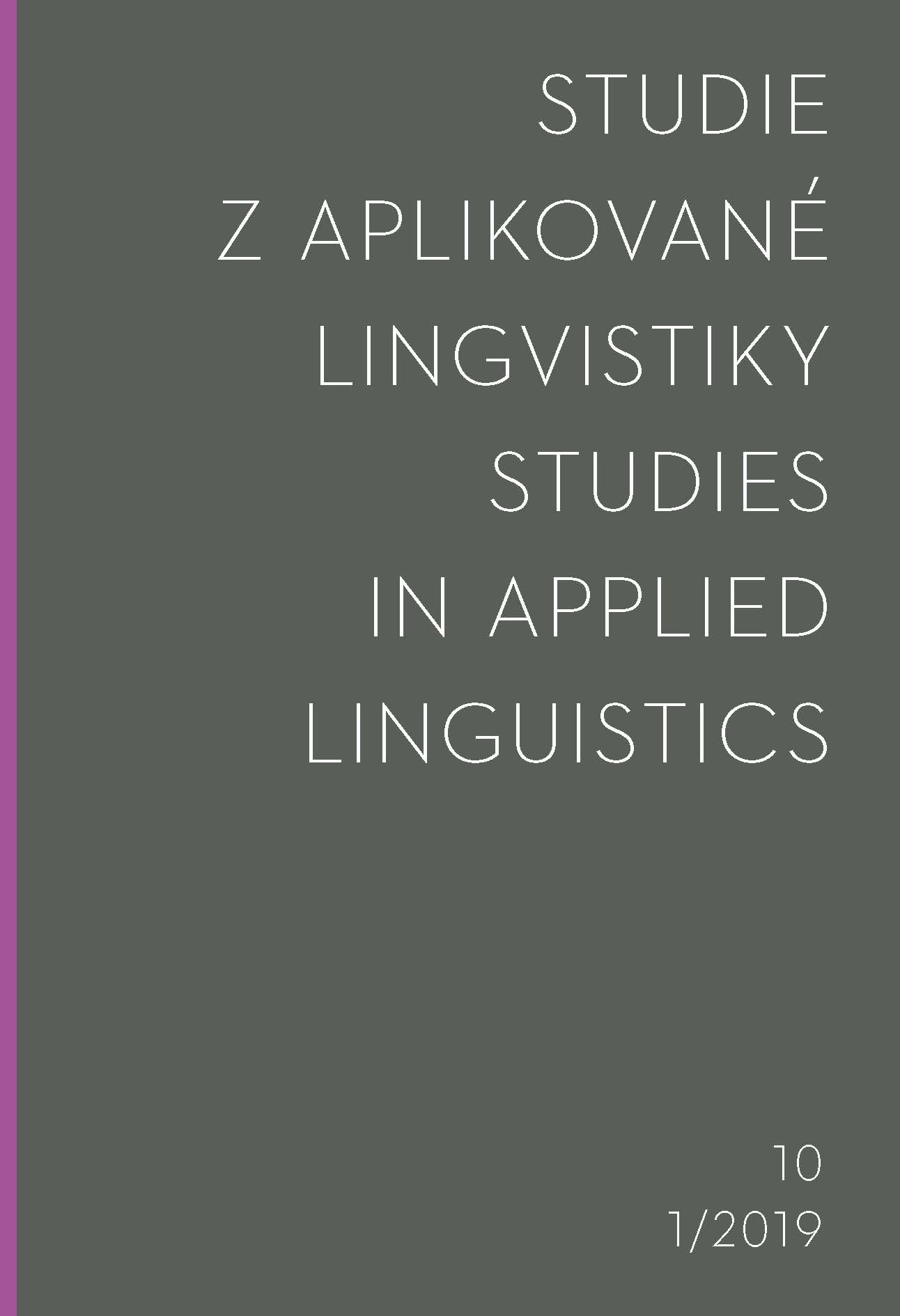

Keywords: European Constitution; Ratification; Impact; Romanian Integration; EU Structures;
In order to become a member state of the European Union, Romania must fulfil the Copenhagen accession criteria and align itself with the EU legislation and policies the so-called “Community acquis”. The accession negotiations established the conditions under which the Community acquis is applied in Romania, before and after accession (along the transition periods agreed during negotiations – that is temporary exceptions from the application of a specific requirement of European legislation) and the way in which Romania will participate in the institutions and the budget of the Union. The tendencies came after the France and Netherlands referendums finalized with their negative vote regarding the Constitution ratifying rised the number of doubts of the EU member states about the Constitution’s prescriptions. The citi¬zens of the wealthier countries begin to contradict their state policies which promoted till now the new European Constitution.
More...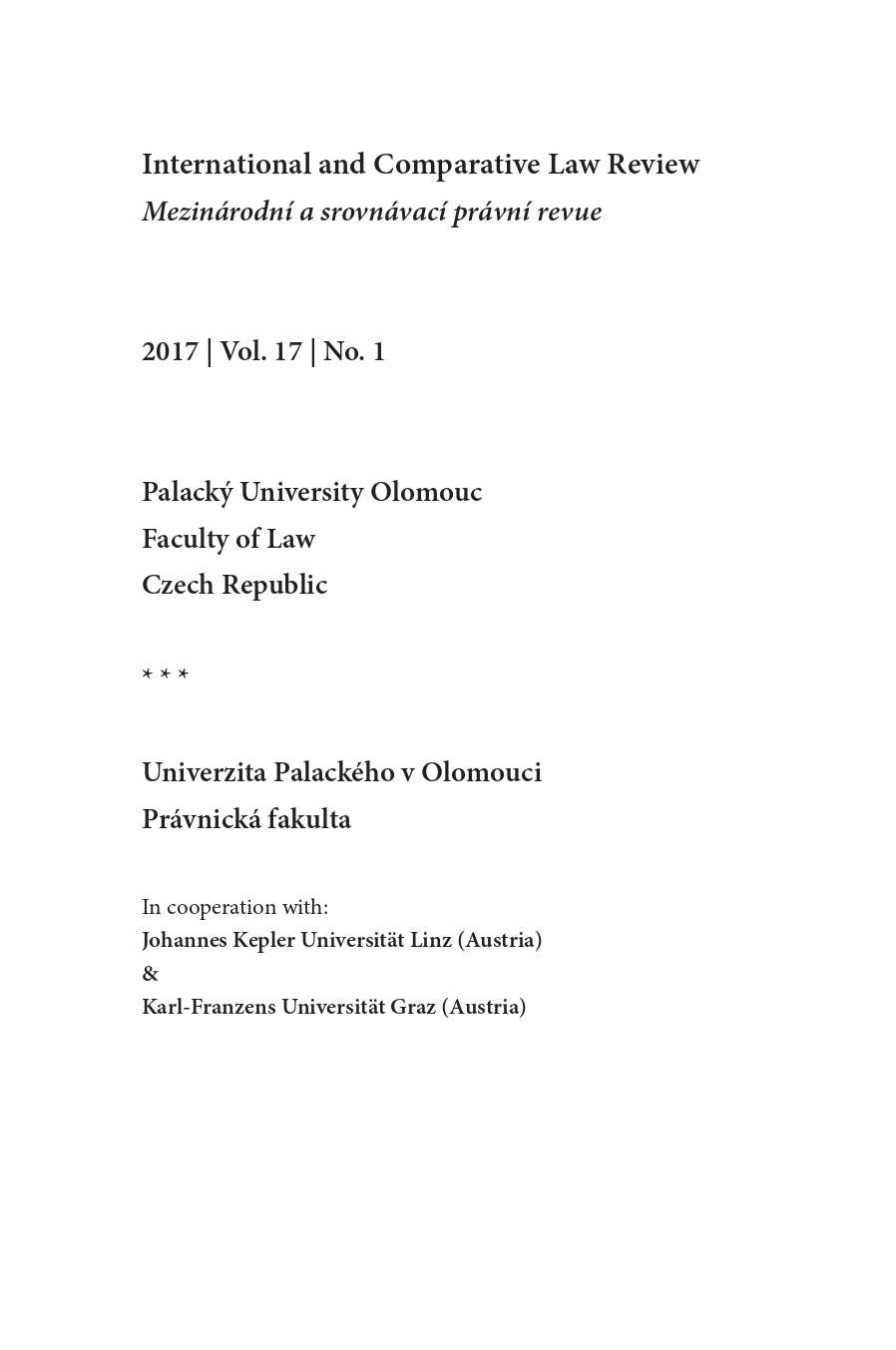
Keywords: impeachment; U. S. Constitution; U. S. president; Congress; British Constitution; checks and balances;
The goal of this article is to critically evaluate, what role the impeachment plays in the U. S. Constitutional system and how it contributes to ensuring accountability of elected officials in the USA. To this end, the author will provide a short overview of the development of the institution of impeachment, discuss the current regulation of impeachment in the U. S. Constitution and the application of impeachment in practice, assessing its efficiency and role in the constitutional system. Finally, the conclusions will be reflected upon from the viewpoint of the Czech Constitutional system and its model of constitutional accountability.
More...